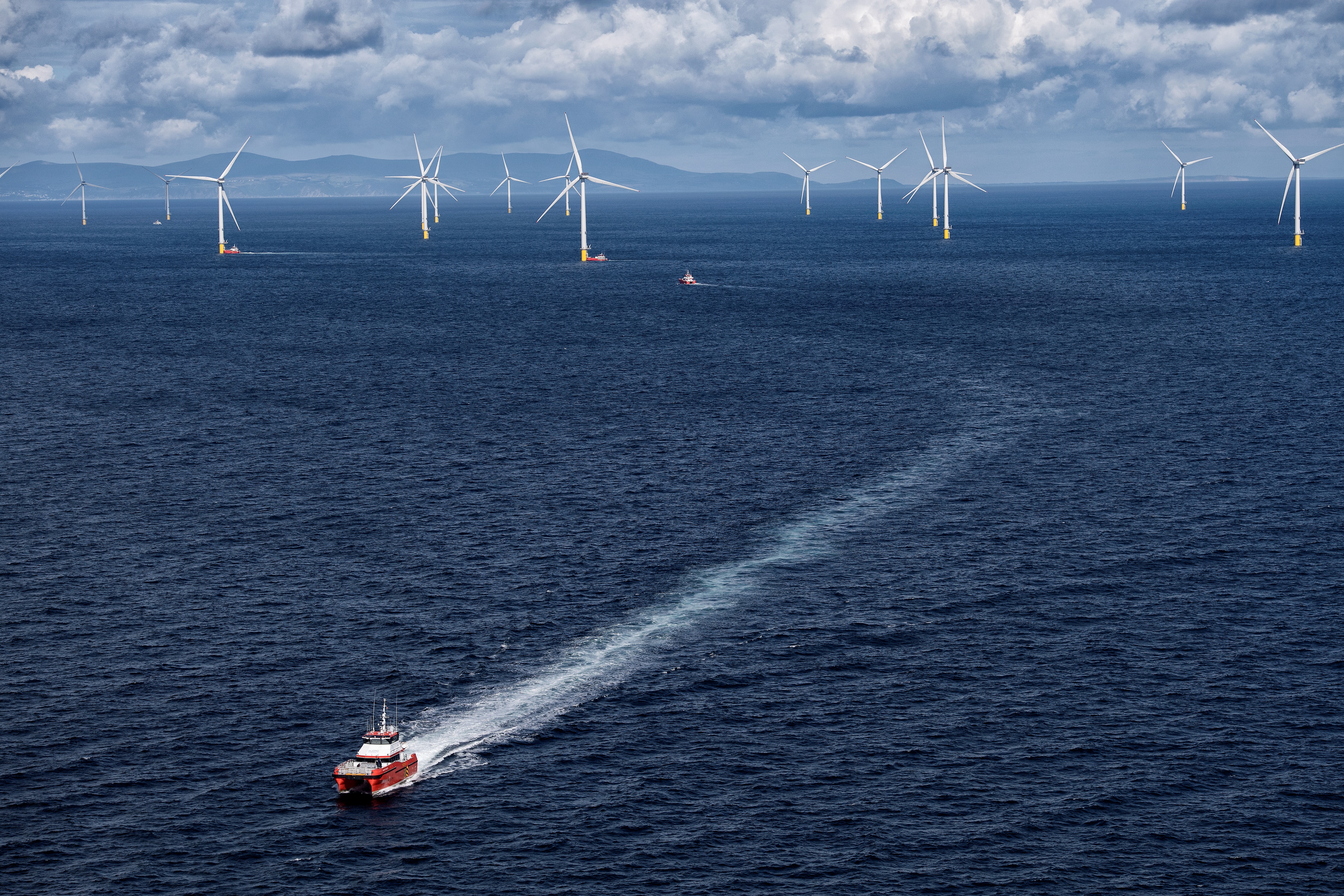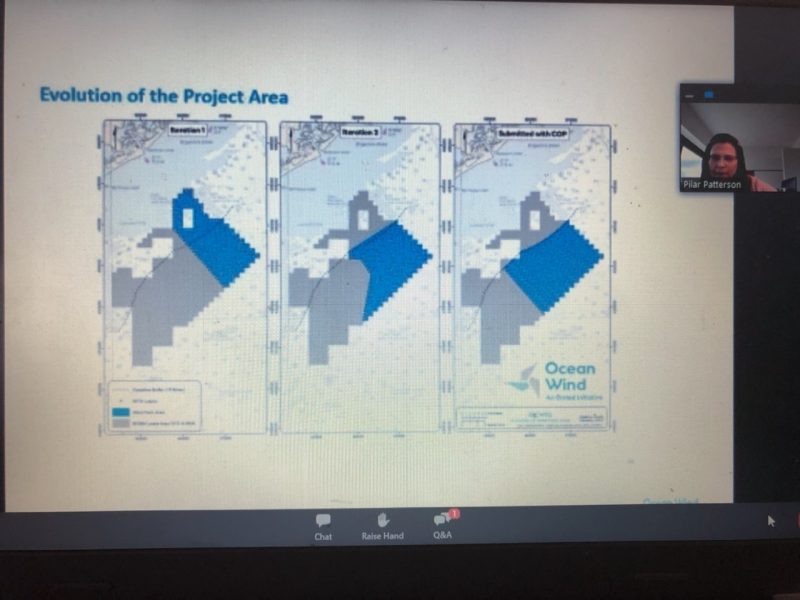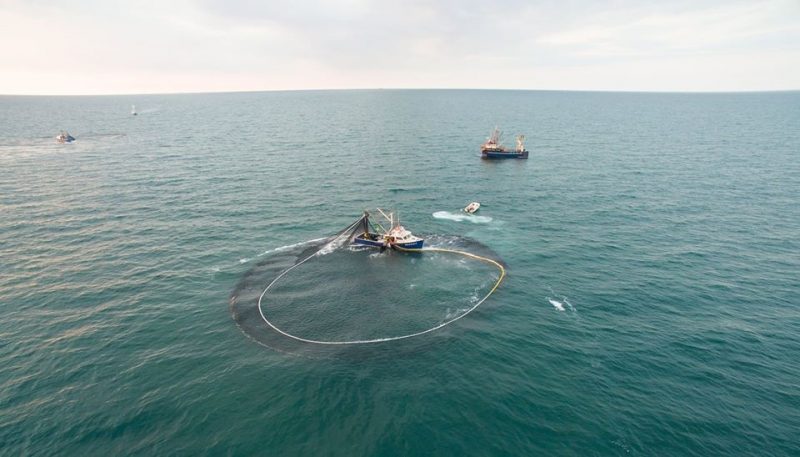
By MADDY VITALE
An industrial park on the ocean, or a way to combat global climate change, were two opposing views of a proposed offshore wind farm planned for the waters 15 miles off the coast of Ocean City.
The Bureau of Ocean Energy Management (BOEM), a federal agency, is reviewing the environmental impact and operations plans for Danish company Orsted’s wind energy farm.
Orsted needs its permitting approvals to put 98 towering wind turbines in the ocean spaced a nautical mile apart. If approved, the wind farm would stretch from Atlantic City to Stone Harbor, passing by Ocean City in the process. It would be operational by 2024, Orsted officials said.
During a three-hour virtual meeting Tuesday, BOEM and Orsted representatives outlined the proposal and the necessary permits.
The meeting is one of three BOEM is hosting during a 30-day public comment period that extends through April 29.
The outcome of the meetings will play a role in what BOEM reviews during Orsted’s application process.
For detailed information go to https://www.boem.gov/ocean-wind-construction-and-operations-plan. BOEM will hold two other virtual meetings in the next week: at 5:30 p.m. Thursday, April 15 and at 5:30 p.m. Tuesday, April 20.

“Our job is to ensure it is done economically. We are preparing an environmental impact statement. This meeting is for us to hear your concerns,” explained Jim Bennett, BOEM program manager. “We consider public input a critical component. Your thoughts on this are valuable. Your participation and feedback plays a vital role in our environmental analysis. We look forward to your thoughts.”
The officials heard from representatives from the fishing industry, people who spoke of the positive and negative economic impact, local environmental groups, Ocean City officials and residents concerned about the project and the impact to their electric bills.
Although negative responses to the project dominated, some people who attended the virtual meeting expressed their support for the project to help boost the economy, touting its benefit as a renewable energy source and the economic benefits it would create.
The consistent concerns were the sight of the turbines, the sound, the effects on marine life, including the North Atlantic right whale, and birds, navigation for fishing vessels and other boats, tourism and the positive and negative implications for the shore economy as well as the hospitality industry.
Orsted has two more years of permitting approvals needed for various things involving the project.
One vital part of the project is to receive approval to run underground electric cables through Ocean City. That would entail boring a hole horizontally underneath the beach and opening up the streets the width of the island to come out the bay side.
The cables would connect the offshore turbines to a substation next to the former B.L. England Generating Station in Marmora. B.L. England is under consideration as one of the sites where Orsted would link the wind farm to the land-based power grid.
Possible potential landfalls at Fifth Street or 13th Street would be routed within West Avenue. Orsted is also considering running cables along 35th Street, which would follow Roosevelt Boulevard into Upper Township and then North Shore Road to B.L. England.
Orsted permit manager Pilar Patterson tried to dissuade the opponents of the plan.
She gave the layout overview and noted that it was done with changes to the grid where the turbines would go based on initial feedback from the fishing industry.
“One nautical mile is 15 percent longer than on land. The layout provides clear and safe navigation out of larger fishing ports of Atlantic City, Barnegat Light and Cape May,” Patterson said. “Ocean Wind has undertaken numerous fishery reviews looking at locations of prime fishing grounds. The wind farm area itself has little overlap on the prime fishing areas.”
Patterson explained that there are many factors when it comes to how much of the turbine or its propeller people can see from land, including the weather, curvature of the earth and the thinness of the blades.

She also pointed out that there would be both aircraft and marine navigation safety lighting that would provide “continuous amber flashing lights with maximum visibility of five nautical miles and that construction of the wind farm would be limited during the tourism season.”
Patterson also explained that there would be a detection system set up specifically for the North Atlantic right whale. “It will provide real time data and detection of mammal localizations,” she said.
However, a member of the fishing community, Scot Mackey, said during the public portion period that, “The fishing industry did not support nor was our information in the final design.”
Several proponents of the wind farm spoke in support of the plan. Ciro Scalera, a representative of the New Jersey Laborers Union, said that he was in favor of the project because it could be beneficial to the area for job creation and the economy as well as providing green energy.
But Tricia Conte, who is from Save Our Shoreline, a coastal environmental group, said that she has major concerns.
“We are concerned with the endangered North Atlantic right whale, sea turtles, lobsters and other marine mammals that will be impacted by the pile driving. We also have significant fishing concerns,” she said.
Conte said prior to the meeting, “At first I was concerned about the view, which will be a horrible blight upon our beautiful Jersey shore, but now I know that other issues are of greater significance.”
Ocean City Councilman Michael DeVlieger said, “I believe that the wind turbines are an existential threat to numerous wildlife species off our coast, in particular the Atlantic sturgeon, the North Atlantic right whale and the horseshoe crab. They should be protected under the Endangered Species Act.”
He noted that the project would also likely adversely affect the real estate, hospitality, tourism, and fishing industries which keep the Cape May County economy strong.
“This is our livelihood here,” DeVlieger said, adding that perhaps the project can be done up in North Jersey to see if it is successful there before bringing it to an area that needs the tourism to survive.
DeVlieger also said that he believed navigation of Coast Guard and fishing vessels will be impeded.
“For safety reasons, the turbines should be spaced farther apart,” he added.
He also said that much more research must be done before a project such as this one is approved. “No one knows how this will affect that Cold Pool, that feeds our wide variety of sea life.”





